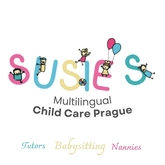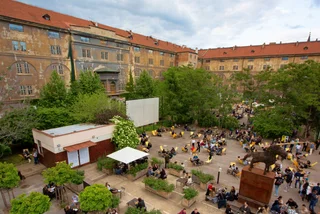When it comes to choosing neighbors, Czechs remain most welcoming to Slovaks, Britons, and Americans, despite a recent dip in the overall popularity of Slovakia and the U.S.. That’s the key finding from a new survey published today by the analytical institute STEM, mapping Czech public attitudes toward foreigners.
Western nations win broad acceptance
Nine in 10 respondents said they would have no problem living next to a Slovak, STEM reports. The British (81 percent), Americans (79 percent), and French (78 percent) also enjoy broad acceptance.
Notably, Americans' high standing comes despite the fact that the popularity of the U.S. has fallen to an all-time low. "In some countries, we can separate the politics of the given state from the foreigners who live here,” says STEM analyst Kateřina Duspivová.
Croats (73 percent) rank perhaps surprisingly high, reflecting warm cultural ties (and maybe the fact that Czechs love to holiday in the Balkan country).
Migrants from Middle East shut out
Conversely, Czechs aren't comfortable with people from different ethnicities. Survey respondents expressed the least willingness to live next to Afghans, Syrians, or Sudanese, with fewer than a quarter of Czechs willing to live beside them. Roma communities continue to face entrenched prejudice: only 22 percent of respondents expressed acceptance, placing them near the lowest-ranked groups.
📉 Czechia's least-liked neighbors
- 1.Afghan
- 2.Roma
- 3.Arab
- 4.Sudanese
- 5.Syrian
- 6.Russian
- 7.Turkish
- 8.Indian
STEM research, August 2025,
Czechs' least-favored neighbors by nationality or ethnicity.
Russians face a steep drop
But while friendships with Western nations remain strong, the survey shows a sharp decline in attitudes toward Russians. Since Moscow’s full-scale invasion of Ukraine in February 2022, acceptance of Russians as neighbors has plunged.
Only 31 percent of Czechs would now be comfortable with a Russian next door, down from 50 percent in 2016. Researchers note this figure is nearing levels last seen in the 1990s, when barely one in five Czechs felt positively about Russians.
Ukrainians gain a surge in support
The reverse trend is true for Ukrainians. At the turn of the millennium, just 10 percent of Czechs said they would welcome a Ukrainian neighbor. Today, nearly half (46 percent) would do so: a massive shift driven by wartime solidarity and closer daily contact.
Vietnamese community turns the tide
Perhaps the biggest long-term success story belongs to the Vietnamese community. Once viewed with suspicion in the 1990s, when fewer than 10 percent of Czechs accepted them as neighbors, their approval has now risen to 73 percent. STEM attributes this to three decades of integration and the perception that the Vietnamese are among the best-adapted minorities in Czech society.
Neighborhood choices reflect global shifts
STEM researchers stress that attitudes toward foreign states and individual foreigners do not always align. But the latest numbers make one thing clear: while old friendships endure, Czechs’ neighborhood preferences are shifting sharply in response to global conflicts and changing demographics.












 Reading time: 2 minutes
Reading time: 2 minutes 





























